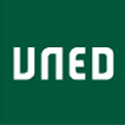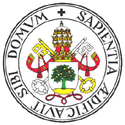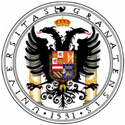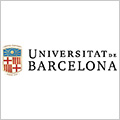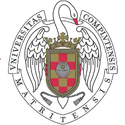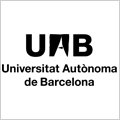Bachelor in Archaeological, Anthropological and Forensic Sciences - Grado en Arqueología, Antropología y Ciencias Forenses
-
Imparte:
-
Modalidad:Presencial
-
Precio:Unlimited number of Scholarships available for next academic year
UK/ROI/Channel Islands: £9,535 per year
International: £19,635 per year -
Comienzo:Septiembre 2026
-
Lugar:Bournemouth
Reino Unido -
Duración:3 Años
-
Idioma:El Grado se imparte en Inglés
-
Titulación:BSc (Hons) Archaeological, Anthropological and Forensic Sciences
This highly employable sciences degree bridges the gap between science and humanities, preparing you for a wide range of fascinating career opportunities in archaeology, anthropology, forensic investigation and other applied sciences.
104 - 120 UCAS tariff points including a minimum of 2 A-levels or equivalent. BTEC Extended Diploma: DMM. Foundation Year: 48-72 UCAS tariff points.
International entry requirements:
If English is not your first language you´ll need IELTS (Academic) 6.0 with minimum 5.5 in each component, or equivalent.
This highly employable sciences degree bridges the gap between science and humanities, preparing you for a wide range of fascinating career opportunities in archaeology, anthropology, forensic investigation and other applied sciences
Receive theoretical and practical learning across the human investigative sciences of crime scene investigation, archaeological and anthropological theory and scientific problem solving
Attend BU’s archaeological field school to participate fully in a large-scale excavation, where our students have discovered significant finds, changing the way we view the past
Build a strong portfolio of transferable skills and, in second and third year, select a combination of units of study based on your own personal interests and career ambitions. 87% of our graduates are either working or studying fifteen months after graduating
Undertake hands-on practical work in our state-of-the-art laboratories, all delivered by leading academics
Complete a five or a 30-week placement to apply skills developed as well as build a network of professional contacts and a strong CV, enhancing your career prospects.
Year 1
Core units
Archaeological, Anthropological & Forensic Science Study Skills: Scientists must be able to work with a range of field and lab data. This unit will teach you how to perform statistical analysis, create charts, graphs and maps, and write clear and concise reports using appropriate software packages.
Archaeological Practice: Essential skills and knowledge for the aspiring archaeologist. You´ll understand the interconnectedness of data collected from field situations and recovered from archived sources in an on-going analytical process of refinement and reinvestigation. Completing this unit will help you to understand the context of archaeological data, which will support and enhance aspects of structural, artefactual and palaeo-environmental analysis delivered at all levels in the course.
Chemistry: Gain an understanding of aspects and processes in fundamental and analytical chemistry and develop your laboratory skills. The unit will be predominately delivered through lectures and practical laboratory sessions. The laboratory sessions will reinforce theoretical concepts by dealing with experimentally generated data and allow for one-to-one and small group discussions.
Cell Biology: The fundamental concepts of biology, including cell structure, function, control and basic molecular biology. You´ll learn how cells contribute to disease and the basic experimental techniques used for investigating cells.
Studying Ancient Materials: Learn to handle a range of artefacts and other archaeological materials including ceramics, textiles, foodstuffs, glass, metals and building materials. You´ll observe and record their characteristics and their importance to the interpretation of people and societies.
Introduction to Forensic Investigation: Gain a deeper appreciation of the legal aspects, command structure and operational procedures of UK forensic investigations, as well as an insight into the range of forensic sciences available. You´ll gain a theoretical understanding for enhancing practical experience in the recovery of physical evidence.
Year 2
Core units
Core units
Archaeological Science
Crime Scene
Field & Research Skills
Forensic Science
Option units (choose two):
Environmental Archaeology
Becoming Human
Introduction to Toxicology
Optional Placement Year
You may choose to complete an optional 30-week (minimum) placement on a four-year course, or a short five-week work placement on a three-year course. You’ll get an opportunity to include a period of academic study during this time. The placement year offers a chance to gain experience and make contacts for the future.
Final year
Core units
Advanced Forensic Science: Enhance your knowledge and critical thinking skills for scientific and analytical principals underlying the practice of forensic science. You´ll gain in-depth knowledge of key areas of forensic science.
Core units
Advanced Forensic Science
Archaeological Management
Independent Research Project
The Science of Human Remains
Option units (choose one)
Primate Behaviour Ecology
Sarup to Stonehenge: Neolithic & Chalcolithic NW Europe
Forensic Practice
Animals & Society
Roman Britain
Our graduates go on to a large variety of roles, using their transferrable skills in positions and areas listed below:
Archaeologist
Commercial Heritage, museums, conservation trusts and tourism
Data management and analysis
Education, higher education, research and academia
Historical preservation
Commercial archaeology excavation and consultancy
Local government services, charities, social research and policy, health and social work, development,
Law, law enforcement, forensic science, scene of crime and police forces
Overseas agencies and international organisations


